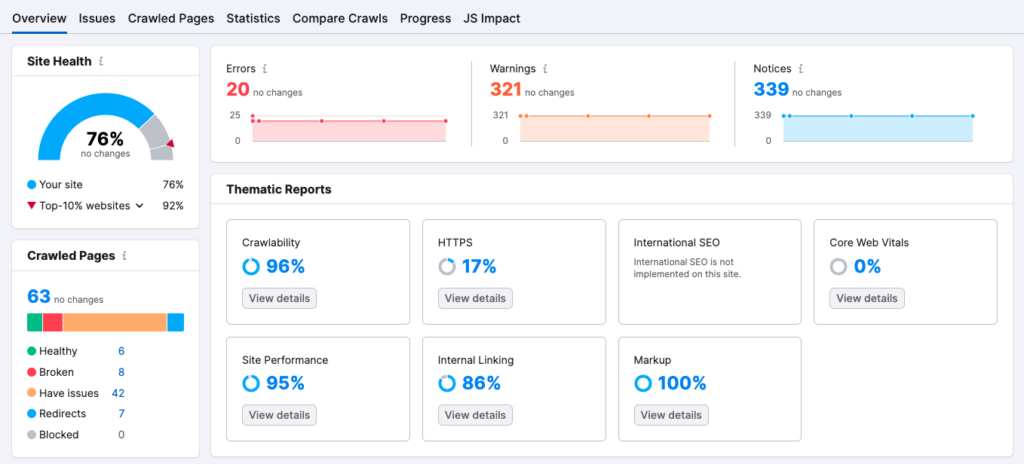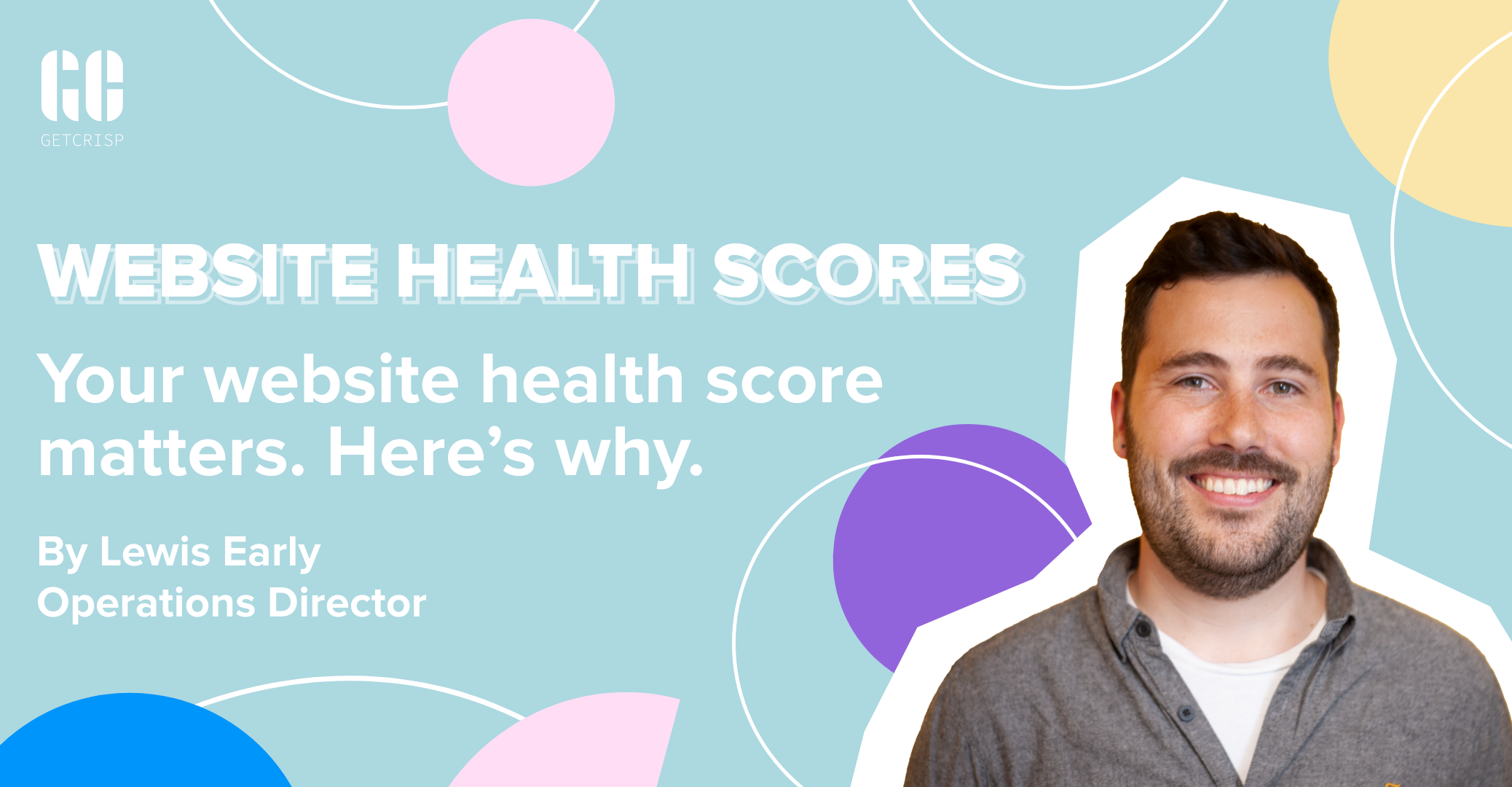Ever seen a health score for your website? Lots of SEO products can create one (we use SEMRush to generate ours), and it will look something like this:

Now, this may seem abstract or even irrelevant. But your site health has a huge impact on how likely people are to find your site, contact you, and ultimately buy from you.
We’re running free health scores at the moment, with tips on how to fix issues. So, I wanted to give a short intro to what health scores tell you, and why they matter.
The basics – how health scores work
Search engines such as Google are looking for ways to differentiate sites and ensure they are sending users to not only the most relevant sites, but also sites with optimal user experience.
You can think of a health score as a proxy for your overall SEO potential. In other words, it tells you how likely you are to come up high in search results. Every search engine has web-crawlers. These are bots that regularly download, read and index online content, so that they can retrieve relevant search results.
Health audits mimic those bots. They’ll follow every link on every page, count the words, check the underlying code, and look out for various technical red flags. What comes out is a score. Different checkers will weight issues in slightly different ways, but the principle is always the same. Sites with high scores will rank well in searches. Sites with low scores won’t. Sites with very low scores might be completely hidden.
My health score is good – does that mean I can forget about it?
In a word, no. A good health score is a sign of good practice. But SEO is a process, not an event. You should monitor your site health at regular intervals, to make sure to keep your score up.
As a gauge for what makes a good health score – a site health score of 92% will put your website in the top 10% of all sites. We’d consider this ‘not bad’. We however recommend aiming for top 5% by maintaining a score of at least 95%.
What if my health score is bad?
In short, a bad health score means your site is underperforming, whether that’s in search, performance, security or usability. But it can be fixed. You’ll get a summary of issues, which will be ranked by severity. Take a look at a previous article on common SEO issues and how to fix them.
From here, you’ll need a plan of action. You’ll need to identify the highest priority fixes. This will tend to be the most damaging issues, and any issues affecting your most important pages.
How do I improve my health score?
Your health score will tell you which issues affect which pages, with some info on how to fix them. You’ll need to work through them in priority order. Here are some of the more common serious ones:
Final thoughts
If there’s one thing to take away, it’s this: maintaining site health is critical to maintaining your performance in search. So, are you ready to find out your health score?
We’re offering free audits. We won’t just tell you your score – we’ll give you actionable tips to fix any issues.
